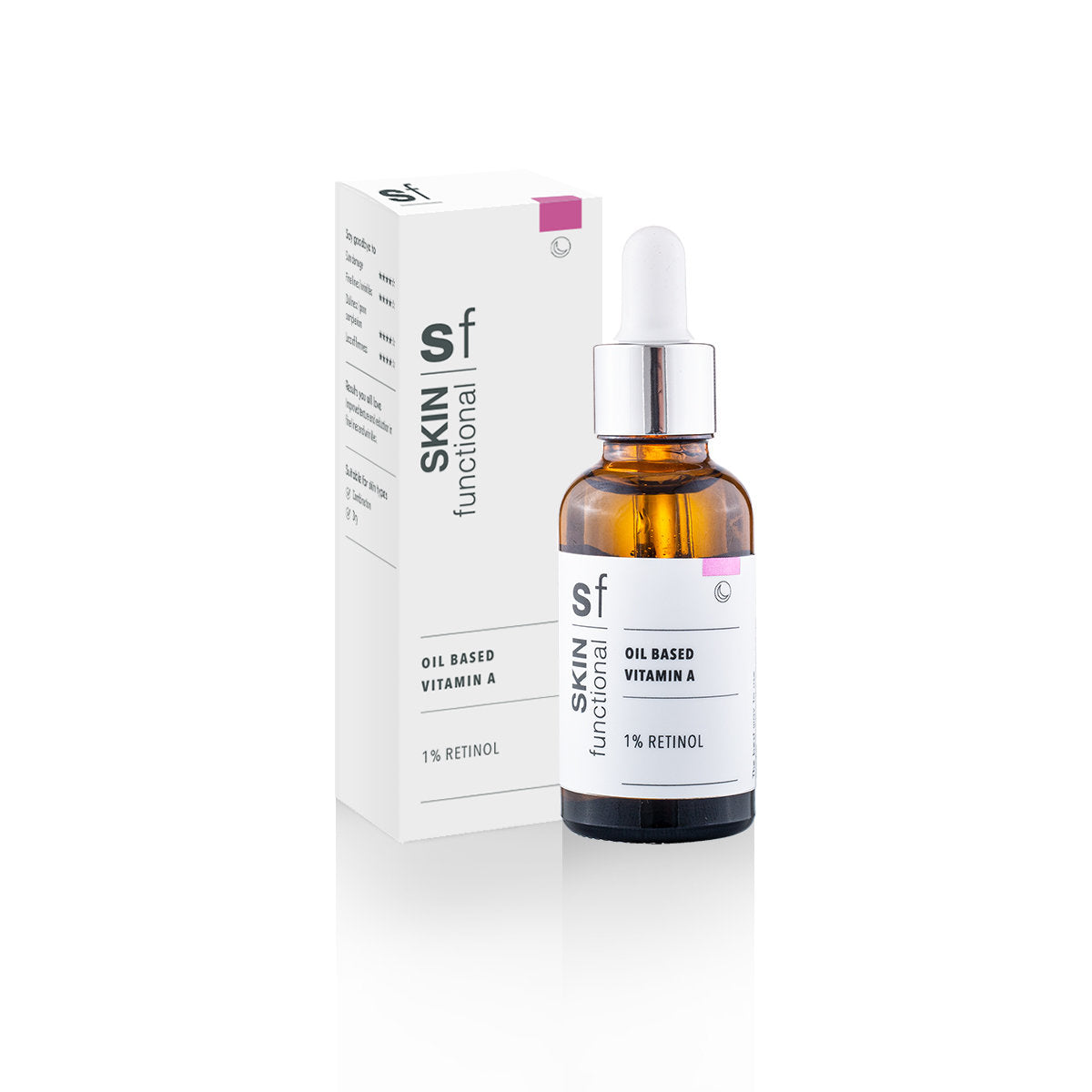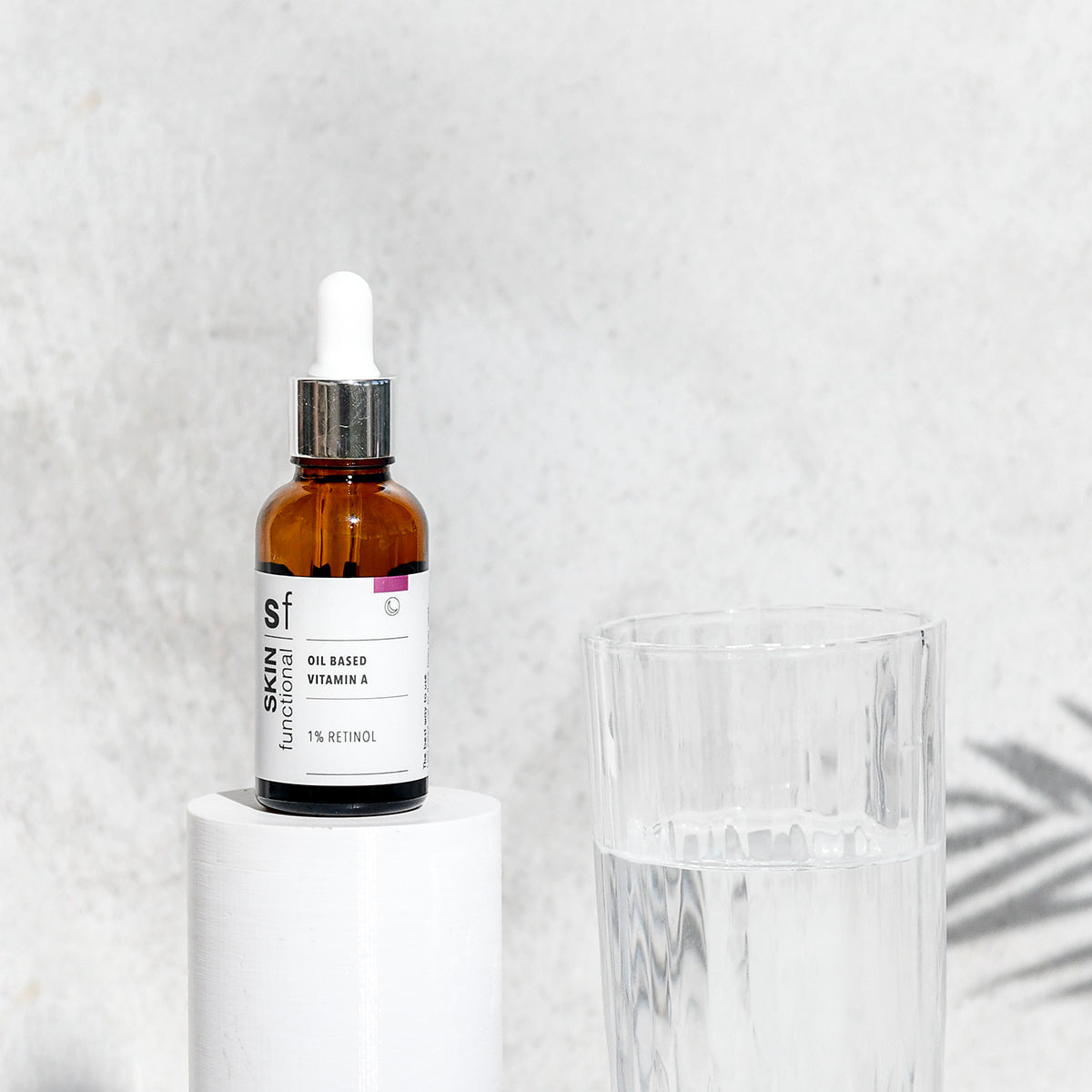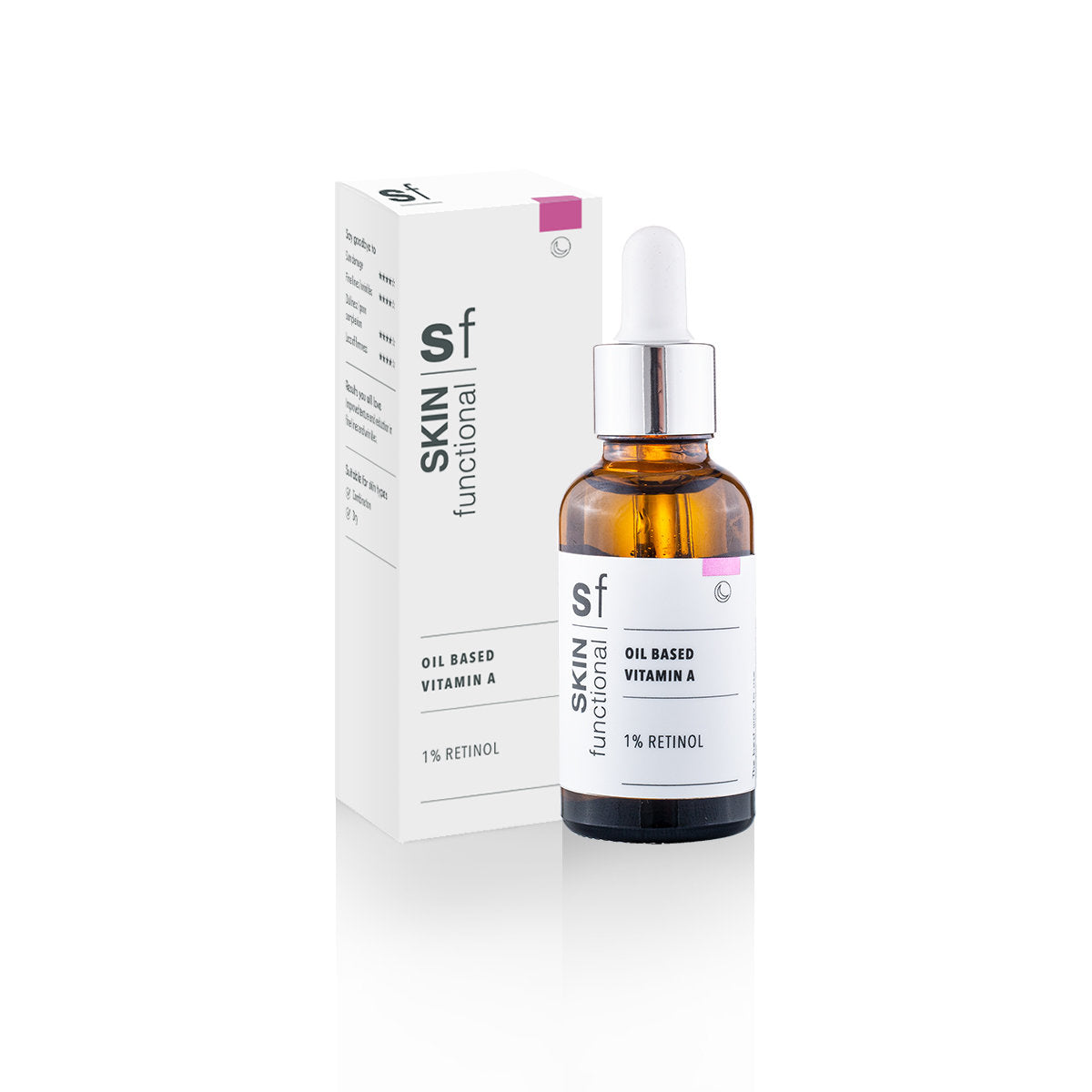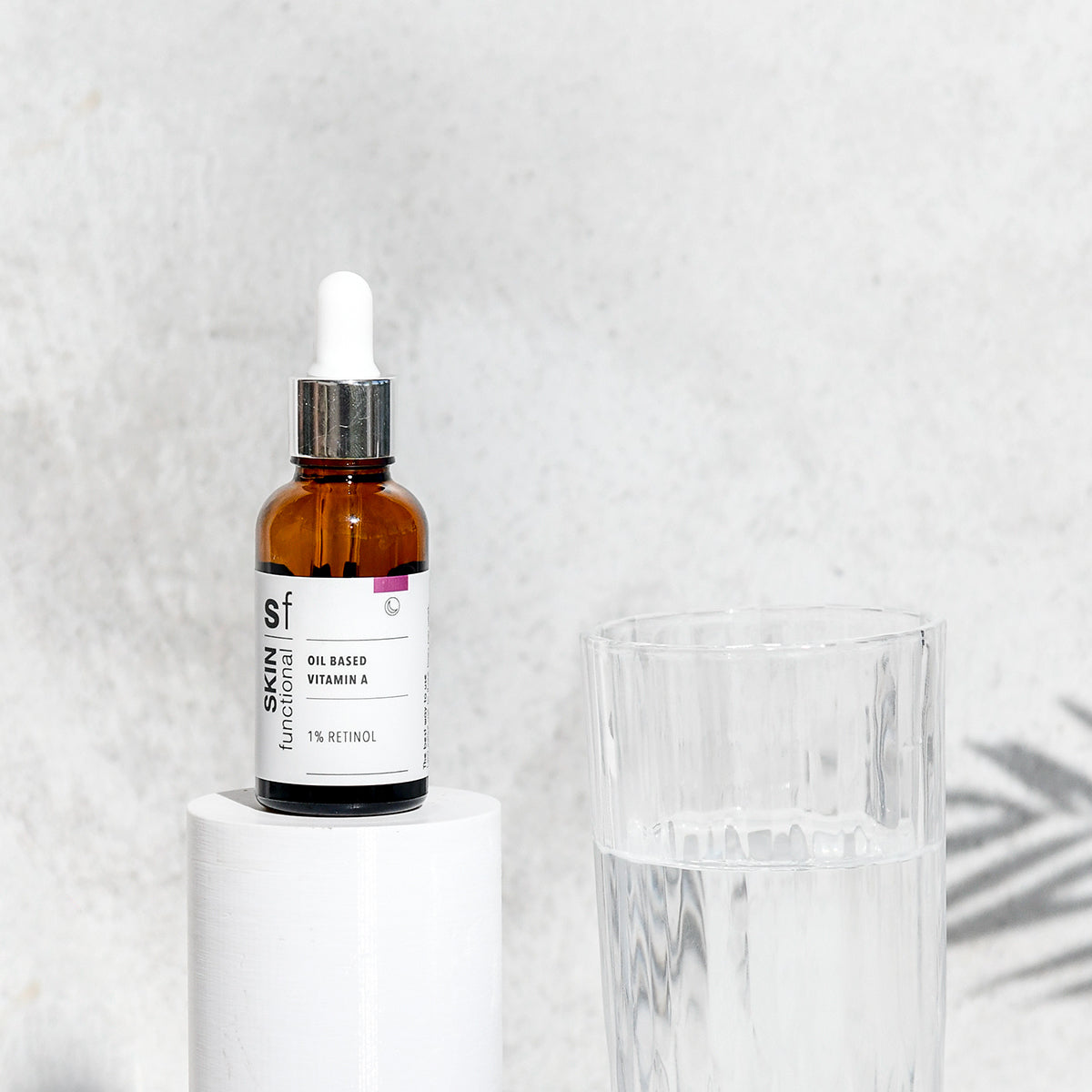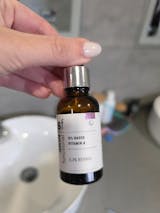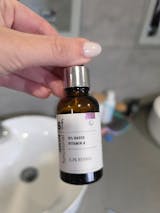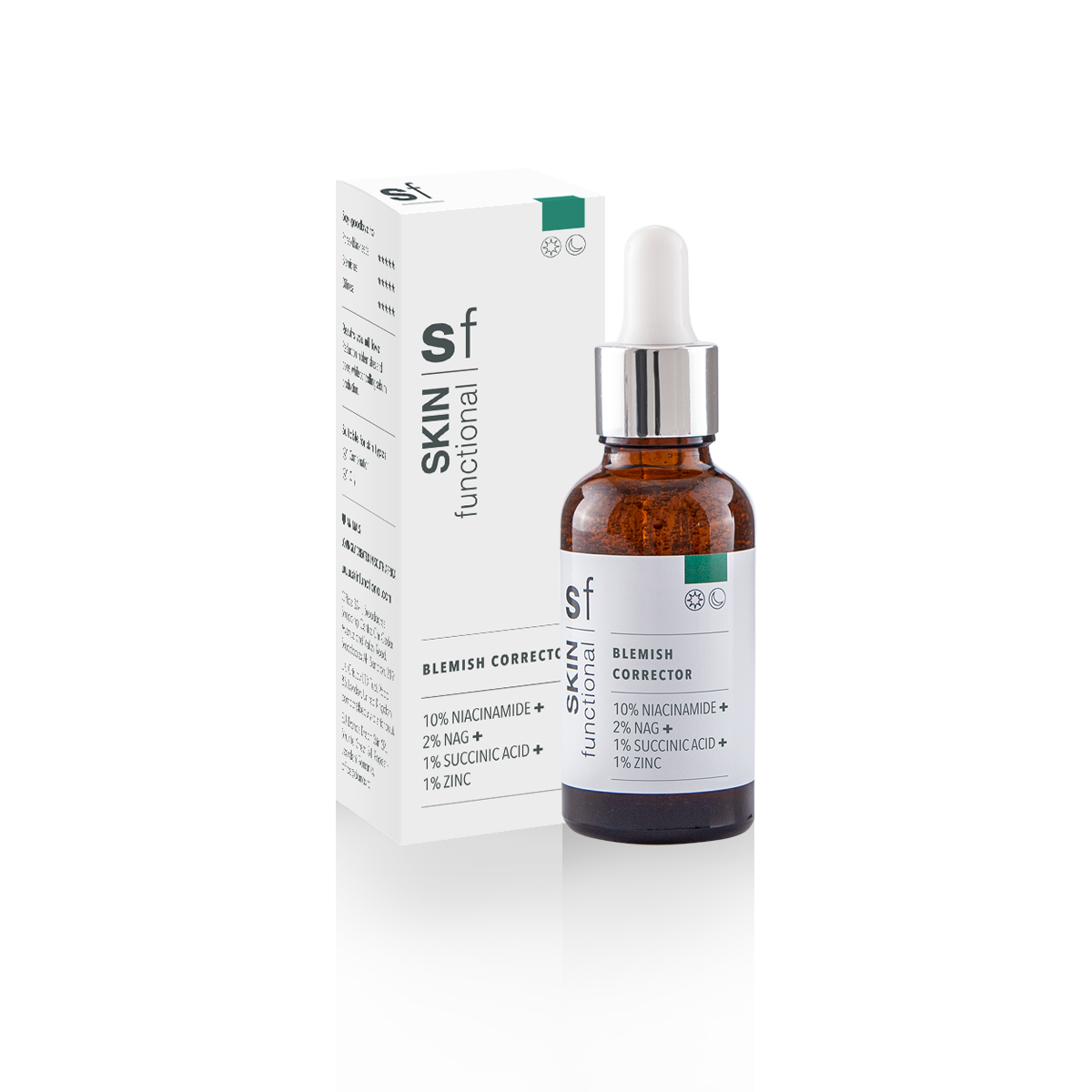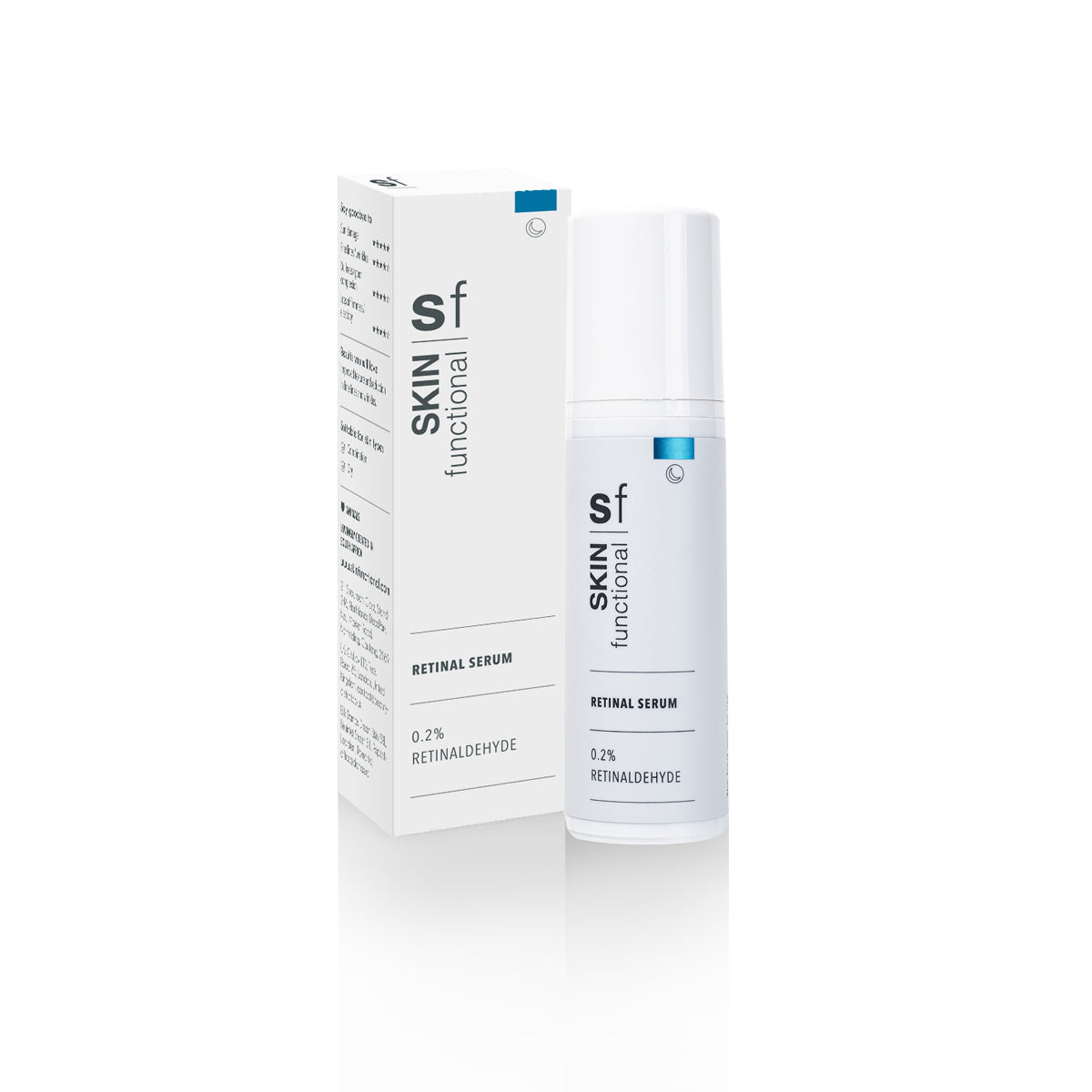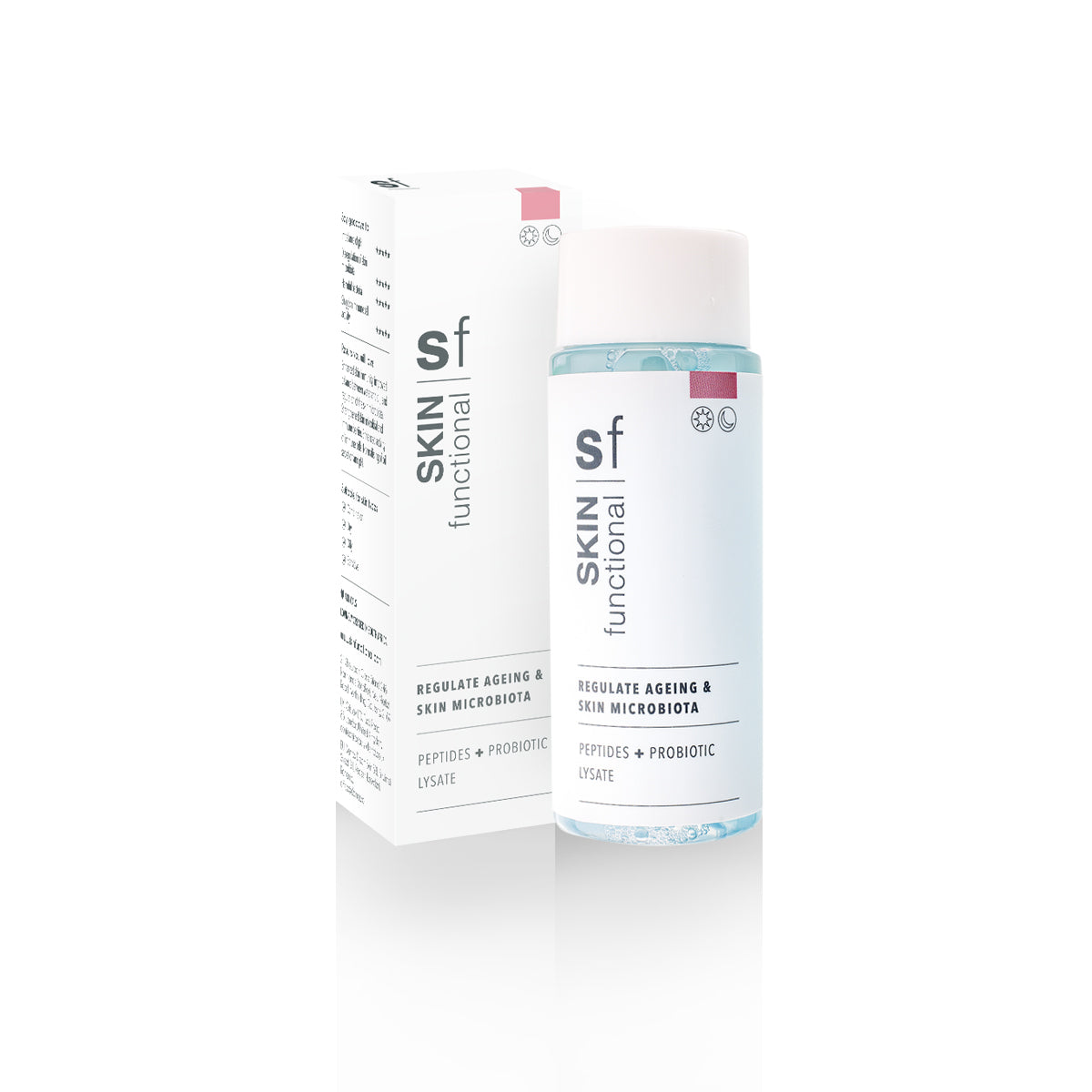1% Retinol Oil Serum
1% Retinol Oil Serum
Oil Based Vitamin A
A highly stable Retinol serum formulated at a high concentration of Vitamin A perfectly suited for skin which is very well accustomed to Retinoids.
Available in stock (2522)
How to use
How to use
Suitable skin types
Suitable skin types
Say Goodbye to
Say Goodbye to
Colour Indication
Colour Indication
Ingredients
Ingredients
Good to know
Good to know
For your safety
For your safety
Accepted Payment Methods

Your payment information is processed securely. We do not store credit card details nor have access to your credit card information.


